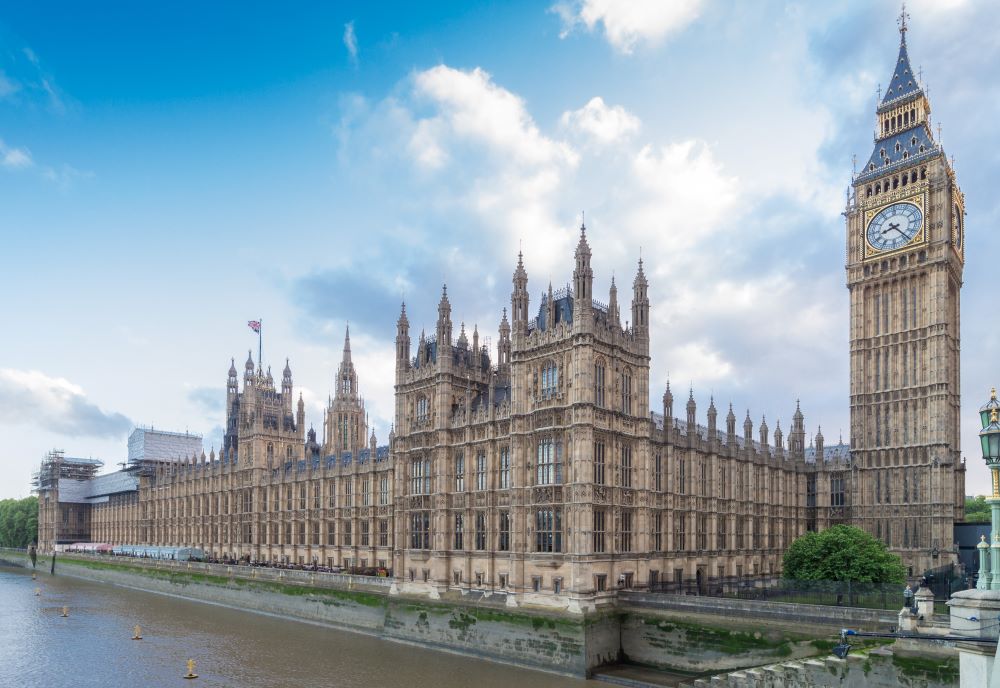
Another week in Parliament comes and goes and, as has often been the case in Parliament since 2016, discussions relating to the UK’s relationship with the EU have been front and centre.
This week, the discussions centred on the Retained EU Law bill and the Windsor Framework, with an announcement on Retained EU Law causing controversy in some parts of the Conservative Party.
Retained EU Law
Anyone who closely watches parliamentary business, will have seen that there was a session scheduled in Parliament this Thursday (27 April) for the House of Lords to discuss the Retained EU Law (Reform and Revocation) Bill.
This is the so-called “Brexit bonfire bill”. But, as reported previously by the IOE&IT Daily Update, the government is slowing progress on this.
The reason for that became clearer this week, when secretary of state for business and trade, Kemi Badenoch, told a group of Conservative MPs that almost 4,000 pieces of retained EU law would remain on the UK statute book, with only around 800 being removed by the end of the year. This is quite different to the Government’s original pledge to review or scrap all EU law by the end of 2023. Badenoch emphasised in the meeting that this process was one that could not be rushed.
The pushback from Brexiteers on this announcement has already begun, with some seeing it as a betrayal of previous political promises. However, businesses concerned about the end-of-year deadline will be breathing a sigh of relief, as many had warned that blanket scrapping of certain laws, without adequate replacements, could cause wide uncertainty and difficulty for businesses.
Windsor Framework
Also this week, vice president of the European Commission, Maroš Šefčovič, spoke virtually to representatives on the EU Affairs Committee at Leinster House in Dublin regarding the Windsor Framework. He spoke positively about the solution, saying:
“The movement of goods from Great Britain to Northern Ireland, which are not at risk of entering the EU single market, has been made smoother for trusted traders.”
There was also some positivity about the Windsor Framework in an evidence session held this week by the Lords Protocol on Ireland/Northern Ireland Sub Committee. But there were also specific concerns raised that provoke further thought.
For example, Peter Summerton, managing director of McCulla Ireland, noted that he thought the Windsor Framework needed to be examined within the context of the Border Target Operating Model (TOM) to analyse the pressure, it would put on supply chains. There were also calls for more clarity on issues such as red and green lanes and what businesses would be excluded from the green lanes.
Witnesses giving evidence acknowledged that SMEs might struggle with new rules due to a lack of experience and staff, citing the solution for “levelling the playing field” as being more education.
Apprenticeships
Education itself was an important theme in another debate this week, on apprenticeships. A question in the House of Lords posed by Lord McNicol of West Kilbride in relation to plans to extend the sectoral remit of the apprenticeships levy and the timescale of study prompted a response from Baroness Barran (parliamentary under secretary of state at the Department for Education) that the government is spending £550m on skills bootcamps for shorter courses and is working increasingly with creative industries to offer more flexible schemes.
There were also concerns raised throughout the debate about the need to broaden the update of apprenticeships to make it easier for SMEs to take on apprentices.
Lord Aberdare (crossbench) asked for a review of levy transfer schemes which would enable large employers to transfer unused levy to small businesses in the same supply chain. This idea has been widely discussed in the business community in recent months, however there is currently no government plan to enact this proposal.
Baroness Barran did not respond to the suggestion directly and cited statistics that “41% of all apprenticeship starts were in SMEs in 2020-21, up from 38% in 2019-20.”
Advocating for a different apprenticeship model, from slightly outside the political arena, Euan Blair wrote a piece in The Times this week reminding businesses that apprenticeships “aren’t just for the young”.
IOE&IT in Scotland
Also this week, IOE&IT director general, Marco Forgione, spent time building on existing strong relationships in Scotland.
“We've had some really positive meetings in Glasgow and Edinburgh with Scottish Development International discussing the ways trade can more effectively help promote and support Scottish businesses, particularly MSMEs across Scotland with international trade.
“We had a great conversation exploring not just the promotional work and support, but also our really practical involvement with the green ports initiative, analysing the supply chain for green technology and inward investment into Scotland”
Forgione added that he looks forward to continuing and deepening the Institute’s partnership with the Scottish government and Scottish representative bodies and organisations and Scottish business.
Parliament goes into recess next week ahead of the King’s Coronation, but political issues will remain as live as ever, particularly as we look ahead to local elections next week (4 May).



